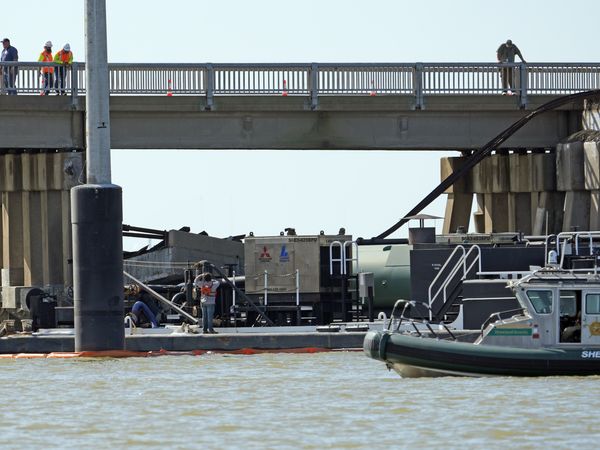
In the words of the great Ramones: “the kids are losing their minds” — and by “kids”, in this context, we all know we mean Australia’s press corps.
Federal elections are an all-the-Christmases-at-once moment for Australian media (yes, us too at Crikey!). It’s the six (count ’em! six) weeks every three years when what we do — or what we think we do — lands dead centre in the public moment. It’s the time when Australia’s political leaders (and yes, you too) can’t avoid us even if they want to.
All yesterday, we had the excitement of expectation! He’s on the plane! He’s with the governor-general! He’s made the announcement! A brief post-sugar high disappointment: wait, what about our questions? No worries, here’s Albo!
Is this really the start? Well, yes and no. Journalists like to think that elections are won and lost in the official campaign when they’re at the centre. Politicians think they’re won about six months out, when journalists aren’t paying attention.
But different times, different jobs. The past six months for both parties has been about harm minimisation. They’ve been using two tools — paid advertising to shore up their weaknesses, and what publicists call “free media” to reinforce their strengths.
That’s why, counterintuitive as it may seem, the federal government has been spending an estimated hundreds of millions of tax dollars on climate change. It’s not about making you think about climate change. It’s about making sure you stop thinking about it, confident that it’s all under control.
It’s high risk. They’re coming off a decade of insisting climate change is Labor’s problem. It tells us that, privately at least, they’ve recognised that with fires and floods, the story’s changed. It’s a sign of how much it’s hurting them that it’s the terrain they’ve chosen. It feels like a save-the-furniture play against the voices-of independents in their comfortable city seats.
We won’t know just how much they’ve spent until some Senate estimates hearing picks it apart in 2023, but last time around federal government advertising totalled about $140 million in the 2018-2019 financial year.
Substack’s flagship Australian newsletter Unmade crunched the data (as we like to say) to show that the government’s climate ads were the single biggest advertiser on free-to-air television last month, pushing the Hungry Jack’s Pork Belly Deluxe burger into second place.
Can you buy an election? Guess we’re going to find out.
Labor meanwhile has been confronting its perceived weaknesses on leadership and economic management. For “leadership”, it’s been all semiotics: the new-look Albo out and about over the summer, fit and trim with schmick new glasses and a more suppressed working-class accent. Effective enough to force Morrison to respond with a sniffy “I-yam-what-I-yam”, reinforcing Labor messaging. It was an exchange that ended with an uptick in both Albanese’s net approval and preferred prime minister ranking.
As the saying goes, you only get one chance to make a first impression. Labor will be scoring the Morrison snipe as a win.
Pushing back on economic management is proving trickier. The “where’s the money coming from?” is a default gotcha positioning for the media, leaning into the gallery’s firm conviction that “economic management” begins and ends with budget deficits.
This is no win for Labor. Last time around, they leaned into it with big-target tax policies, and Twitter has spent most of the past three years urging them to do it again.
Successful Labor campaigns have either cemented promises of restraint — such as Hawke’s “budget trilogy”, which involved a commitment not to increase tax of expenditure as a proportion of GDP and to reduce the deficit — or have, more audaciously, turned the claim back on the government (see Kevin07’s “reckless spending must stop” jiu jitsu throw).
Labor has tried to repeat the ploy this time around with its attack on rorts and waste, delivering twice the value by tearing down both the government’s integrity and its claim to superior economic management.
Moreover, Labor has been trying to change the rules, to broaden “economic management” to less comfortable ground for the Coalition: real wages. This is the “Fingerhut thesis” in practice: when economic management is about budgets, conservatives win; when it’s about kitchen-table economics, Labor wins.
Now that the parties have spent these past six months setting their choice of the election table, it’s over to the media to report what each side is plating up in campaign-time announceables.







